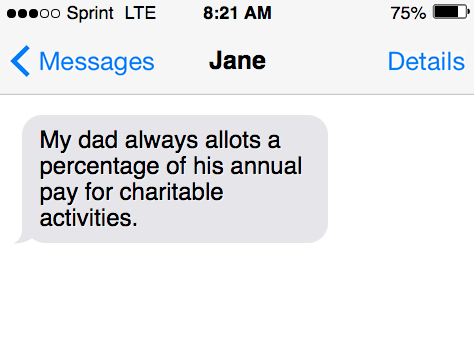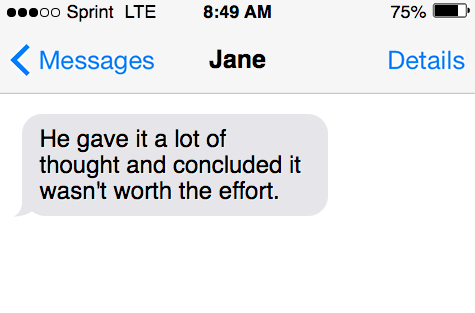What is the difference between “alot” and “a lot?” Which is the correct form to use when trying to express that something is large in size? Or that there is a significant sum or amount of something that I am describing?
Learn the difference between “a lot” and “alot” in this English grammar guide…
Definition of a “lot”
The term “a lot” is a common phrase that aims for the generalized quantification of something, usually a value that cannot be visibly or tangibly measured. It can get used to describe [most] things in the world like objects, qualities, places, people, and so on.
It refers to a “great many” or “plenty” of something. There could be a lot of fruits, airplanes, employees, and concepts for instance.

Difference between “alot” and “a lot”
Colloquially, the word “alot” is often mistaken to be a replacement for “a lot” when the former is grammatically incorrect and not an actual word in the English language.
The reason for the misconception that “alot” bears the same meaning as “a lot” is uncertain.
It’s speculated to be rising from an incorrect usage popularized through texting lingo (slang) that shortened the phrase due to a typo.
However, it cannot get used in formal writing as it’s not a word in the English dictionary. Fun fact: “Alot” is the name of an Indian town.
| Word | Definition |
| Lot (pronoun) /lät/ | a large number or amount; a great deal. |
When to use “allot”
A word that typographically resembles “a lot” is “allot.” But it has a completely different meaning. It is used to refer to situations when someone portions out or divvies up something from a whole (and gives it to others).
Some synonyms for allot include, “assign”, “distribute”, “allocate”, “designate for”, and “set aside for”. Things that can be “allotted” include the likes of space, time, property, salaries, ingredients, objects, and much more.
| Word | Definition |
| Allot (verb) /əˈlät/ | give or apportion (something) to someone as a share or task. |
Sentence examples
- I showed up early because my duty is to allot the seats to the students in the exam hall.
- My dad always allots a percentage of his annual pay for charitable activities.
- A popular mnemonic technique used for memorizing text is to chronologically allot visual pictures to the paragraphs. This helps in recalling them easily.
- The boss is going to allot equal positions to the task force irrespective of their experience and seniority.
- After my grandfather’s death, his property will be divided and allotted to his children.
When to use “a lot”
Generally, “a lot” is used to signify situations where a huge amount of something is referred to. This could be anything like a lot of effort, a lot of trains, a lot of countries, a lot of colors, and so on. But specifically, its usage depends on whether it is employed in its adverbial or noun phrase forms.
In the first case (adverbial use), it means “a huge deal,” “heaps,” or “loads,” such as, “You’ve been smiling a lot lately.” In the second case (noun use), it denotes an immeasurable frequency of something such as, “I’ve been eating a lot of takeout.” Below are some more examples of both.

Sentence examples
Here are sentence examples to help understand better.
Noun:
- She knows a lot about spaceships. She’s been obsessed with them since she was five.
- He gave it a lot of thought and concluded it wasn’t worth the effort.
- My uncle took us to his farm, where we picked a lot of strawberries.
- The shopkeeper has a lot of free time on Mondays and Tuesdays as the business is slow.
- I was asked to bring a lot of craft supplies since we didn’t know what we might need.
Adverb:
- Pat told Ryan, “We’ve been through a lot. We’ve been through great times a lot, and we’ve been through bad times a lot. We’ve been missing and thinking about each other a lot. There’s nobody in this world I love more than you.”
- Asians wear masks a lot because they are constantly struggling with worsening air quality.
- Ever since I was diagnosed with PCOD, I’ve noticed my hair falling a lot.
- I hope you know that I value your opinion a lot and I wouldn’t do this if you told me not to.
- Sue told Emily, “It means a lot that you dedicated this poem to me.”
Etymology of “lot” and “allot”
Even though “lot” and “allot” hold different meanings, they share some history. The etymological origins of “lot” can be traced to Old English born from German and Dutch roots.
The word “lot” traditionally meant “a part of something given to a person” or “a portion assigned to someone.” Its adverbial and noun usage started in the 1800s.
“Allot” on the other hand, had similar linguistic roots, arising from the meaning “dividing up something into lots.”
They are closely connected words that became entirely different in later years. Refer to the table below for more etymology information.
| Word | Etymology |
| Lot (pronoun) /lät/ | Old English hlot (noun), of Germanic origin; related to Dutch lot, German Los . The original meanings were lot (sense 3 of the noun) and (by extension) the sense ‘a portion assigned to someone’; the latter gave rise to the other noun senses. The pronoun and adverb uses date from the early 19th century. |
| Allot (verb) /əˈlät/ | late 15th century: from Old French aloter, from a- (from Latin ad ‘to’) + loter ‘divide into lots’. |
Synonyms for “a lot”
Some other phrases that mean “a lot” include:
- countless
- enormous
- plenty of
- scores of
- manifold
- masses of
- oodles of
- a slew of
- myriad
- umpteen
- in a multitude of
- tons

Antonyms for “a lot”
Some phrases that mean the opposite of “a lot” include:
- not much
- little
- some
- a few
- a bit of
- a speck of
- a morsel of
- a modicum of
- a dribble of
- a hint of
- a splash of
- a trace of
- a sprinkle of
Sources:
- Sorting Out ‘A Lot’ and ‘Allot’
- Alot or A lot: What’s the Difference?
- A Lot vs. Alot vs. Allot
- “A Lot” vs. “Alot” vs. “Allot”: How Much Difference Is There Between Them?
- A Lot, Allot, and Alot: Differences and Common Mistakes
Inside this article
Fact checked:
Content is rigorously reviewed by a team of qualified and experienced fact checkers. Fact checkers review articles for factual accuracy, relevance, and timeliness. Learn more.
Core lessons
Glossary
- Abstract Noun
- Accusative Case
- Anecdote
- Antonym
- Active Sentence
- Adverb
- Adjective
- Allegory
- Alliteration
- Adjective Clause
- Adjective Phrase
- Ampersand
- Anastrophe
- Adverbial Clause
- Appositive Phrase
- Clause
- Compound Adjective
- Complex Sentence
- Compound Words
- Compound Predicate
- Common Noun
- Comparative Adjective
- Comparative and Superlative
- Compound Noun
- Compound Subject
- Compound Sentence
- Copular Verb
- Collective Noun
- Colloquialism
- Conciseness
- Consonance
- Conditional
- Concrete Noun
- Conjunction
- Conjugation
- Conditional Sentence
- Comma Splice
- Correlative Conjunction
- Coordinating Conjunction
- Coordinate Adjective
- Cumulative Adjective
- Dative Case
- Determiner
- Declarative Sentence
- Declarative Statement
- Direct Object Pronoun
- Direct Object
- Diction
- Diphthong
- Dangling Modifier
- Demonstrative Pronoun
- Demonstrative Adjective
- Direct Characterization
- Definite Article
- Doublespeak
- False Dilemma Fallacy
- Future Perfect Progressive
- Future Simple
- Future Perfect Continuous
- Future Perfect
- First Conditional
- Irregular Adjective
- Irregular Verb
- Imperative Sentence
- Indefinite Article
- Intransitive Verb
- Introductory Phrase
- Indefinite Pronoun
- Indirect Characterization
- Interrogative Sentence
- Intensive Pronoun
- Inanimate Object
- Indefinite Tense
- Infinitive Phrase
- Interjection
- Intensifier
- Infinitive
- Indicative Mood
- Participle
- Parallelism
- Prepositional Phrase
- Past Simple Tense
- Past Continuous Tense
- Past Perfect Tense
- Past Progressive Tense
- Present Simple Tense
- Present Perfect Tense
- Personal Pronoun
- Personification
- Persuasive Writing
- Parallel Structure
- Phrasal Verb
- Predicate Adjective
- Predicate Nominative
- Phonetic Language
- Plural Noun
- Punctuation
- Punctuation Marks
- Preposition
- Preposition of Place
- Parts of Speech
- Possessive Adjective
- Possessive Determiner
- Possessive Case
- Possessive Noun
- Proper Adjective
- Proper Noun
- Present Participle
- Prefix
- Predicate



